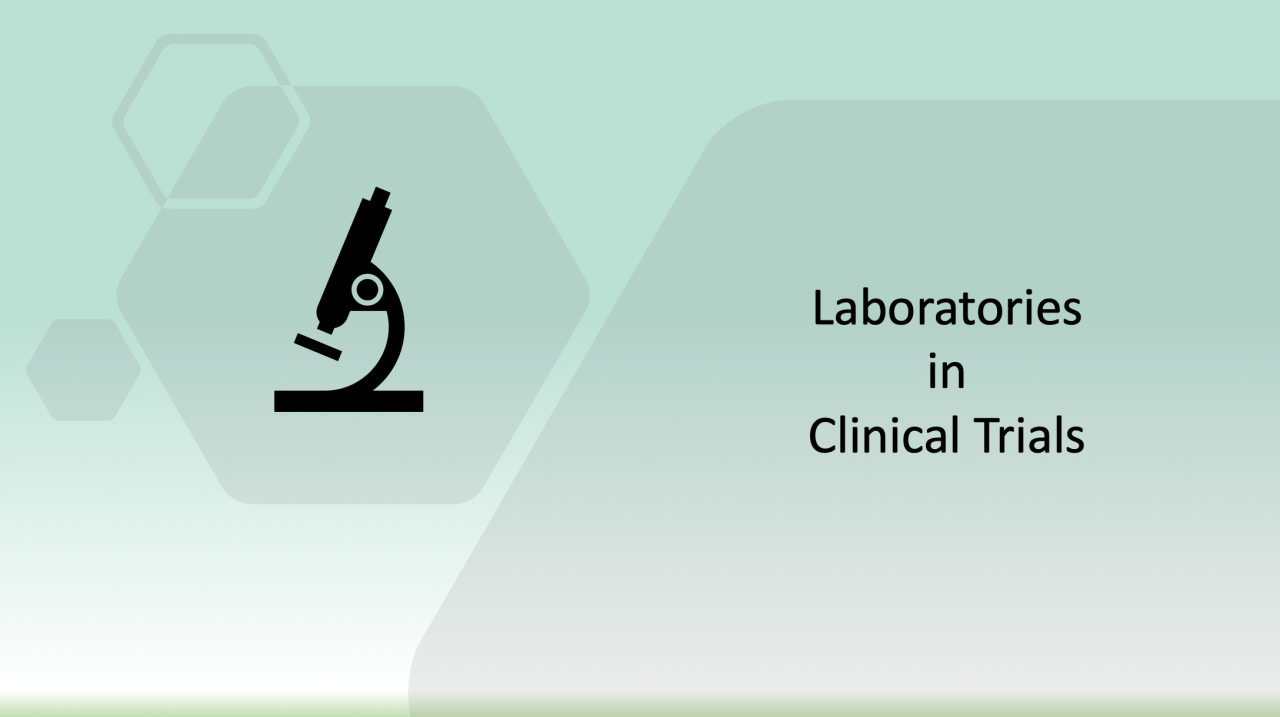Several clinical trials require specific lab tests. Depending on the study protocol the lab tests are required to establish inclusion and exclusion criteria, monitor the safety of the patients enrolled in the study or demonstrate the efficacy of the investigational product (IP). The sponsor/CRO has two options for gathering clinical laboratory data: local labs or central labs.
Central Labs
When a study uses a central lab for performing lab tests, standardized specimen collection kits that contain every essential component (e.g., for blood draw: needles, tubes, alcohol pad, etc.,) are designed for each study visit. Instructions for collecting samples are also included in the kits and the clinical research coordinator needs to follow the steps in the instructions in order to collect the samples. After obtaining the sample, the kits are shipped back to the central lab for final analysis. It usually takes 3-5 days for the central lab to send the results to Principal Investigator (PI) for review. One of the benefits of using a central lab is that since all samples are processed in a specific lab with similar analytical methods bias is avoided. Another benefit is that since the samples are collected at the same day of the visit in the research site; the patients don’t need to travel to other labs which is convenient and time saving for patients.
Local Labs
Local labs are the regular lab facilities that patients usually attend based on their insurance plan. The PI needs to place an order when the trial requires the patient to do the tests. Patients usually prefer to have everything handled in office at one appointment, so it’s uncomfortable for them to take additional time off work to comply. On the other hand, analyzing the data derived from local labs with different analytical methods might be difficult and can lead to bias.
From the regulatory prospective, whether you are working at a clinical site or CRO/sponsor, there are 2 tips to keep in mind;
FDA 1572 Form
Local labs are required to be listed under box #6 of FDA 1572 form. In the case of using local labs a coordinator needs to make sure all the relevant labs are listed. There is no need to list the central labs in this section.
Clinical Laboratory Improvement Amendments (CLIA)
The sponsor will request a CLIA certificate from every single lab that is listed in the FDA 1572 form. So, as a coordinator when you are adding the list of labs in the FDA 1572 form, make sure that you have an updated CLIA lab certificate.

